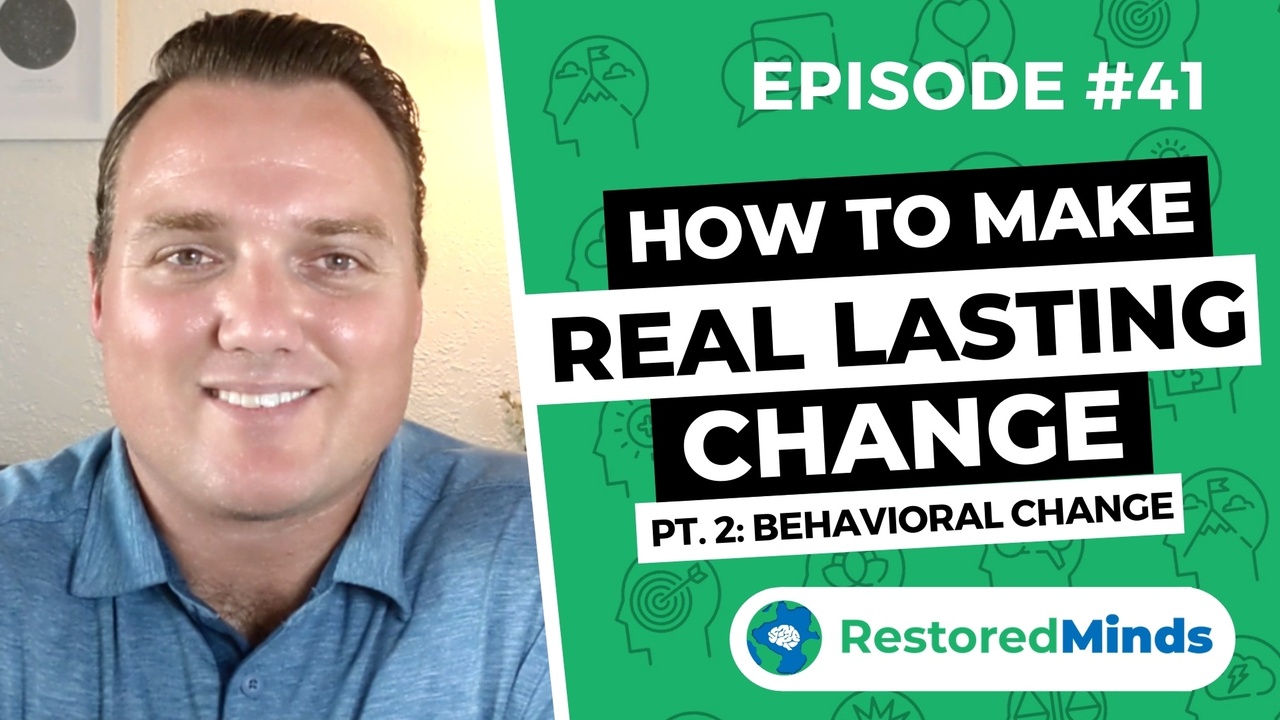How to Make Real Lasting Change - Pt. 2: Behavioral Change
Jul 30, 2020
Why Behavioral Change Often Fails
We've all been there — setting ambitious resolutions to quit smoking, start a diet, or reduce compulsive behaviors, only to find ourselves back at square one after a few weeks. Why is changing behavior so challenging?
The crux of the issue lies in understanding that behavior is the last manifestation in a series of internal processes. These processes include your identity, beliefs, skillsets, and ultimately your behavior. Think of behavior as the tip of an iceberg. The massive structure beneath the surface, comprising your identity and beliefs, drives the visible part above the water — your actions.
The Role of Identity and Beliefs
Identity is essentially the story you tell yourself about who you are. For instance, if you see yourself as "lazy" or as "a smoker," these identities will heavily influence your behaviors. Similarly, beliefs are narratives you repeat to yourself, which may not necessarily be true but feel real to you. For example: "I can't quit smoking" or "Dieting is impossible."
These identities and beliefs shape your behaviors more than you might realize. If your identity conflicts with your desired behavior, you're less likely to sustain that change. This concept is crucial in understanding why people revert back to old habits despite knowing they are unhealthy.
Practical Examples
Consider someone trying to diet. If they operate from an identity of being "lazy" or hold a belief that "dieting never works," these mental constructs will undermine their efforts. Another example is someone in a toxic relationship. If they do not believe themselves to be worthy of better treatment, their behavior will reflect that unworthiness, regardless of rational understanding.
Behavioral change, therefore, requires addressing these underlying beliefs and identities. Simply focusing on changing the behavior without altering the deeper narratives won't result in long-term success.
Making Sustainable Changes
So, what is the solution? The key to lasting change lies in working from the inside out. Start by examining and modifying your identities and beliefs. For instance, rather than adopting the identity of being lazy, start telling yourself a new story — perhaps you are "someone committed to health and wellness."
Moreover, it's vital to build the necessary skillsets to support your behavior changes. Without the skills needed to enact your new behaviors, you're likely to revert to old habits. We will delve into skill-building in the next part of this series, so stay tuned.
Conclusion
Changing your behavior is not just about willpower or making a decision. It's about transforming your inner identity and beliefs, which will naturally shift your actions. By focusing on these foundational elements, you'll find that behavioral changes become more sustainable and less challenging.


